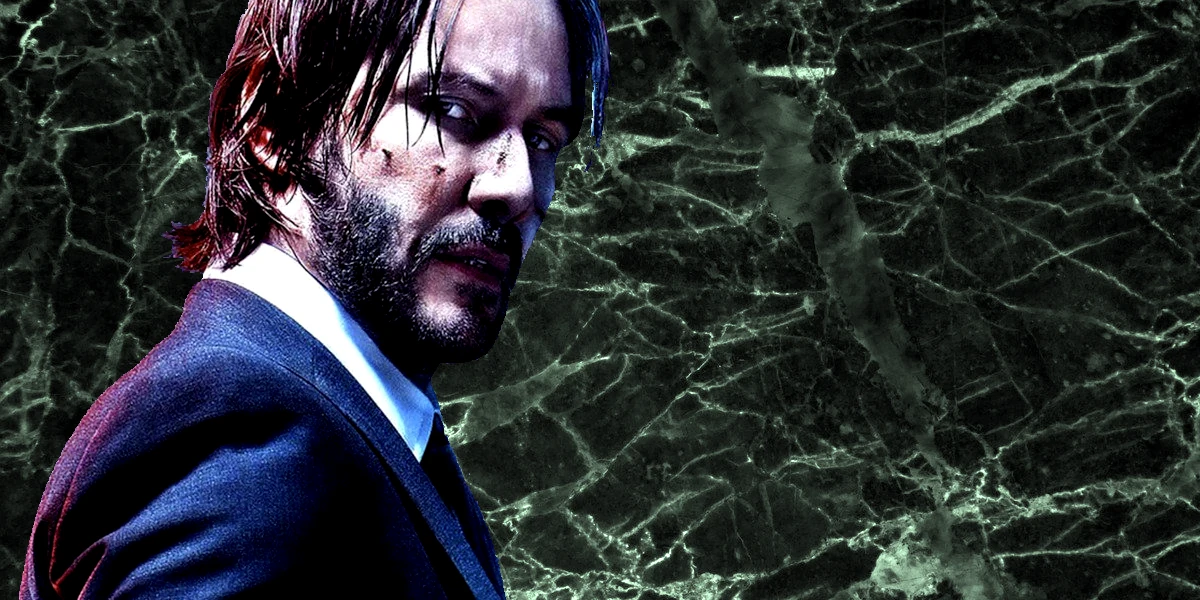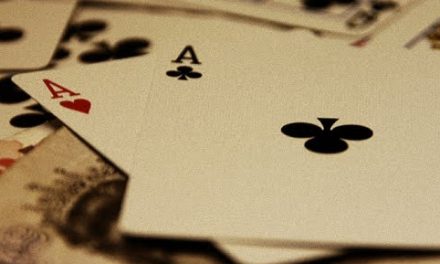Vampire: the Masquerade is a role-playing game set in White Wolf’s “World of Darkness” universe, where various underhanded and nefarious powers have been steadily and consistently driving humanity toward utter ruin since the in-universe fall from Eden. It’s a game that is wholly steeped with 1990s goth and punk edginess, with all the pros and cons that can imply, particularly looking back on the source material more than thirty years later.
I helped run a Vampire LARP (live-action role-playing game) for more than fifteen years, and in that time helped countless people explore the political and social mores of the source material. Some aspects of the setting however have little easy translation or counterpoint in the real world or modern customs, and so they often remained as abstract concepts more than anything, until the player was exposed enough to really grasp how vampire society operated.
While watching the John Wick movie franchise, I was surprised at how many of these esoteric aspects of Vampire presented themselves, though perhaps I should have realized the parallels earlier—a world-spanning shadow society that operates by their own rules while trying to remain hidden from “regular” people. That sounds pretty Vampire to me.
Each of the films portrays one or more different elements of Vampire succinctly and with a great deal of effective world-building. Taking this opportunity to explore the elements one by one, it is my hope that this article helps any fledgling Vampire player find their footing in the fantastical, fictional World of Darkness. There will be spoilers for the John Wick movies, so make sure to watch those before continuing!
John Wick – “Elysium”
While we as members of a society recognize and understand the concept that some places are “sacred” and shouldn’t be subjected to violence—with common examples being historic buildings, churches, schools, and the like—but we also don’t really have a societal mechanism that reinforces that ideology, or have lasting and meaningful consequences to breaking that truce. This is where the real world and the fictional vampire universe—and that of John Wick—differ.
The concept of The Continental, explored in the first Wick film and then revisited in others, is almost identical to the vampire concept of “Elysium”, or a place where no violence (or “business”) can be conducted. It is a safe haven for all, including those who would otherwise be rejected from polite society, so long as they maintain the singular rule. It is a social as well as legislative compact that, once broken, brings the wrath of the whole society down on the one who dared threaten its sanctity.
In vampire society, safe spaces needed to be established where tense negotiations could take place, whether they be between neighboring domains, rival factions, or hot-headed locals. The elders saw this both as a place where they could feel safe from rivals and places where they could continue to exert their control: if they designated some places as “safe” then by definition the population could reasonably expect to meet judicial violence everywhere else.
In the John Wick franchise, the Continental is a place with clear rules, explicit and understood punishments for breaking those rules, and is universal across assassin sects throughout the globe. It’s a place of (relative) safety, and the owner/maintainer of the Continental is charged with that safety and the sanctity of the institution as a whole. In many ways the Keeper of Elysium is responsible for exactly the same; they are to be gracious hosts, but those velvet gloves conceal iron fists should any of the ancient rules be threatened or broken.
I think John Wick does a fantastic job of showing—and not telling—what the concept of an Elysium can feel like, particularly one that is well-integrated into the setting as a whole, in a way that feels organic and natural. One of the best examples I can think of in modern cinema.
John Wick: Chapter 2 – “Boons”
While there were plenty of favors called in and relationships explored in the first Wick film, the opening of JW2 really drives home the nature of vampire Boons and how inviolable they are. A debt, particularly one that calls for blood to be shed, is not one that can be walked away from or ignored, lest the whole of the society come down on the “boon breaker,” as it does for John after he pulls the one-two punch of breaking Elysium and murdering a council member.
For vampires, who by nature are backstabbing, vicious monsters, the nature of formalizing the system by which favors are traded makes sense, similarly to the concept of Elysium; if there were no penalty for breaking one’s word, then there’s no value in anyone giving one’s word and alliances are a matter of convenience and nothing more. For people who want to remain in power, that’s a very dangerous situation, and one the eldest in vampire history would have worked to nip in the bud.
Something new Vampire players often struggle with—as do new vampires, too—is what exactly boons are, and how they differ from favors or other “charitable” actions. Part of it is how nebulous they are in the rules, which I believe is intentional by the game designers so as to not have people rules-lawyering the exact text vs. intent—though of course vaguery didn’t stop players from trying—and part of it is how strictly some other players conflate the two concepts.
Imagine you have two friends, and you go out to dinner with them, separately, with some frequency. One friend fastidiously tracks who buys the meal and how much is spent, and has on occasion called on you to buy them an extra round of drinks to help balance the books. You always know exactly where you stand with them, and whose turn it is to buy, even if it’s a bit annoying to deal with. The other is much more informal, and it’s largely up to how you two feel as to who pays. You don’t really know who owes each other what, because it’s more casual, but it’s also not a big deal.
If you ever need to ask your first friend for money, or to cover a check, you know exactly how much they “owe” you, and you know that they will help you out in order to balance the books, and maybe more if you promise to pay them back in return—and you know they’ll hold you to it. For the other friend, since things are less formal, you may risk hurting their feelings or them feeling a bit taken advantage of, especially if it takes you some time to pay them back. The situation is more emotional, less cut and dry.
Boons work the same way. “I owe you one” is an expression of appreciation, of an informal favor, while “I owe you a Minor Boon” is an official declaration that will be logged and recorded. At some point in the future, that person can call in the Boon, and demand a task of roughly the same difficulty, risk, or importance as that which inured the Boon in the first place.
Look at John’s situation in JW2. Santino was willing to never call in John’s boon, so long as John stayed retired. Once word was spread that John was back in the game, however, Santino came knocking. Because it was a formal, recognized, and recorded Boon, there was functionally no way John could say no without drawing the ire of the entire assassin underworld. Santino blowing up his house was just a reminder of what would happen if John tried to walk away.
If someone, be it in vampire society or as a nation state, clearly violates an established promise or treaty, they must be condemned quickly and publicly, else the entire structure of swearing oaths and making promises quickly becomes meaningless. In Vampire, “Boon Breakers” are immediately and irrevocably unable to call in any boons others owe to them—if they have proven themselves so disloyal to the society at large that they can’t live up to their own word, why should anyone continue to owe them?
A key point that is also brought up in the movie is that, just because someone was obligated to perform an action, it doesn’t free them from the consequences of having done it. They may use “person X called in a Boon” as an explanation, but it’s not an excuse that offloads all culpability. Sure someone else gave the order, but they were the one to carry it out, and there are always consequences. For this reason one should be very careful to whom they owe boons and how much of themselves they willingly put on the line in service to others.
It also speaks volumes that Santino waited until he had the perfect target in mind—his own sister—before roping in John Wick. When someone owes you a boon, that’s an uncashed check. You’ll want to make sure you use it at the right time, where it will have the most impact. Similarly, if someone owes you, you in turn have an investment in their continued longevity; you can’t call in a Boon if the debtor is no more. Sometimes it’s worth owing—or even overpaying—a few Boons to make sure that others have a vested interest in your survival and success.
John Wick: Chapter 2 – “The Primogen Council”
Another one from the first sequel, the entire concept of the Primogen Council. In Vampire, the Primogen Council generally represents a domain’s eldest and most politically-savvy members, usually—but not always—one from each major Clan. These kindred are the representatives of their entire Clans: if two regular members of the populace get into a fight, that’s just some vampires squabbling. If two primogen get into a fight, that’s two entire Clans going to war.
While it’s not a direct correlation—as it could rightly be argued that the High Table function more as the Justicariate than Primogen, as even I do in later sections of this post—the pomp and circumstance that accompanies Gianna’s ascension absolutely fits a vampire being recognized as a Clan’s primogen. While in a role-playing game titles and positions may switch hands with some frequency, in the setting material positions are often held by individuals for years, decades, or longer, making a change of the guard a serious affair.
Primogen, like members of the High Table, are individuals who wield enormous political and personal power, with resources more vast than those they speak for can imagine. It takes an incredible amount of intelligence, skill, planning, and luck to take the top spot, and even more to remain there, much to the chagrin of those who sought to seize power but didn’t plan for actually having it. Santiago thought he and his actions were above all reprisal because he managed to get himself on the High Table, and was not expecting John to fully rebel against the institution he once held so dear. This is a great lesson for any vampire dealing with members of other Clans, other Domains, or other Sects: you can’t rely on your fancy titles to protect you.
The slaying of a Primogen—or member of the High Table—is a massive deal that has repercussions throughout the society, but JW2 shows us that, until a formal hit is put out on John, only Gianna’s followers are looking for revenge. Intra-Clan politics are a sensitive affair, and generally vampire Clans have enough going on internally that they can’t or don’t want to get involved in others’ political struggles—unless there’s profit to be had, particularly in political capital.
John Wick Chapter 3: Parabellum – “Archons”
Right out of the gate I have to say that I absolutely love the Adjudicator in this film. They are a force of societal justice, using every and all means at their disposal to both discover the truth and see their masters’ wills done, in a dispassionate, almost clinical way. I think Asia Kate Dillon absolutely nails the character and gives it far more depth and subtlety than others may have.
In Vampire, Archons are the “secret” agents of the eldest vampires, responsible for the adjudication and punishment of those who break the eldest laws. While enormously powerful in their own right, what makes them terrifying is their near-total autonomy and complete backing of the Justicar they serve. Their word is law, and while they would not often openly or commonly do so, they could even countermand Princes within their own Domain. Their authority stems from a higher power, one to which even Princes must acknowledge and pay allegiance.
Within JW3 the Adjudicator does very little of the “dirty work” themselves, instead paying others to be their weapons in the dark. Archons cannot be familiar and in-tune with every happening in every city, so their first task when arriving in a new location is to gather information, collect resources, and find allies. It is said that many times a Prince will not know that an Archon is even in their city, a thought which terrifies them to their core. After all, they are largely free to run their Domain however they like, so long as they don’t draw the attention—or the ire—of their betters. If an Archon is in town, they pray it isn’t because of something they have done.
While the administrator of Continental has easy parallels to Vampire‘s Keeper of Elysium, within the John Wick universe—particularly with the inclusion of The Continental miniseries—it is also clear that they largely also operate similarly to vampire Princes, with a firm grip on the comings and goings of the vampires (assassins) under their purview, and also responsibility to ensure that everyone is playing by the rules. Non-conformists are pushed to the side and tolerated at best.
In JW3 the Adjudicator acts methodically, thinks rationally, and walks into every situation with the utmost surety that they will walk out of it. We never see the Adjudicator fight, and I think it’s one of the film’s strengths that we don’t need to; we know they are powerful by how everyone else reacts to their presence, defers to them, and are humbled by them. To me, this is exactly how an Archon should act: they have all the means to solve problems themselves, directly, but to do so would be to potentially risk their own health. Much better for a Domain to clean up its own problems, with the right urging and motivation.
John Wick: Chapter 4 – “Bloodhunts”
When a vampire Priince declares a “Blood hunt,” that all efforts should be taken to locate, apprehend, or kill an individual, and that they should be given no quarter or protection under society’s rules, it’s the obligation of every Domain citizen to do just that—find the individual and bring them to justice. When John is labeled “excommunicado” and an ever-increasing bounty placed on his head, he finds that he has no friends, no solace, and no time to breathe as every low-life across the city starts gunning for him, often literally.
While in vampire society there needn’t be additional incentive to chase down someone who has earned the Prince’s most severe ire, many will seek to sweeten the pot, to ensure any and all resources are being leveraged to track them down, such as Boons, the right of Progeny, material rewards, or even—in the most extreme cases—the right to diablerize the guilty party. This ensures that everyone, from the newest neonate to the eldest elder, is properly motivated to run the traitor out of town, or even farther if neighboring Domains are amenable.
JW4 has the titular character gun down roughly 140 fellow assassins, all trying to be the one famed for bringing down the legendary John Wick. Did I mention pride and prestige come into play as well? The person who ultimately kills the Prince’s hated enemy is likely going to command fear and respect among their fellows for quite some time. Though I don’t believe any canonical vampire city has anywhere near one-hundred members, imagine every single local vampire hunting the same prey and you get a good idea of what it is to be on the receiving end of a death sentence in kindred society.
The only way John is able to get “out of” the mess is by challenging the person at the top to single combat. While some Domains may allow for this—in that if you kill the Prince that blood hunts you, you are no longer blood hunted—doing so would set a dangerous precedent for any sitting Prince, that their edicts or words can be obliviated through dangerous combat, ritualized or not.
Regardless, the safest option is to never risk getting on a Prince’s bad side in the first place, and to only expend as many resources in a Blood Hunt as you are willing to lose. As we see in JW4, going up against a superior foe just adds another to their body count.
If you’re interested in seeing the house rules my group developed over 15 years of playing Vampire, you can get them from my github repo
Header image modified from one taken by PRAIRAT FHUNTA from Pixabay and John Wick 4 promotional material.
















